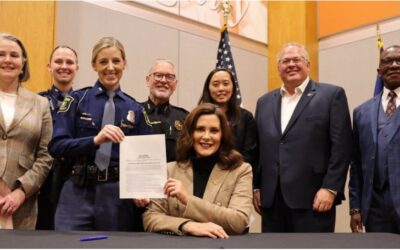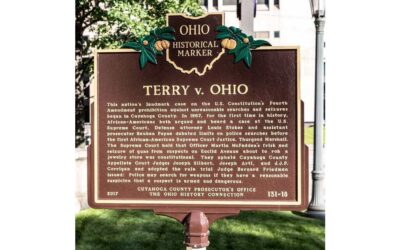Illegal Gun Ownership in Michigan: Insights and Statistics
The issue of illegal gun ownership in Michigan is a complex one, influenced by various factors ranging from criminal activity to loopholes in regulatory measures.
Understanding who owns illegal guns is crucial for developing targeted interventions and addressing the root causes of firearms-related crime. Let’s explore the demographics and statistics surrounding illegal gun ownership in Michigan.
Demographic Insights
- Criminal Element: A significant proportion of illegal guns in Michigan are owned by individuals with criminal backgrounds. This includes convicted felons, individuals with restraining orders, and those involved in illicit activities such as drug trafficking and gang violence.
- Youth Involvement: Youth involvement in illegal gun possession is a concerning trend in Michigan. According to data from law enforcement agencies, a notable number of illegal firearms are seized from young individuals involved in street crime and gang activity.
- Trafficking Networks: Illegal firearms often flow through sophisticated trafficking networks, involving individuals with connections to criminal organizations and underground markets. These networks facilitate the movement of guns across state lines, making it challenging for law enforcement to track and intercept illegal weapons.
Statistical Overview
- ATF Tracing Data: Data from the Bureau of Alcohol, Tobacco, Firearms and Explosives (ATF) provides insights into the origins of illegal guns recovered by law enforcement agencies in Michigan. From 2016 to 2020, ATF reports indicate that a significant percentage of traced firearms were obtained through illegal channels, including straw purchases, thefts, and unregulated sales.
- Crime Gun Analysis: Crime gun analysis conducted by law enforcement agencies offers valuable insights into the types of firearms used in criminal activities. In Michigan, handguns are the most commonly recovered illegal firearms, followed by rifles and shotguns. This underscores the prevalence of illegal handguns in urban areas, where they are often used in acts of violence and intimidation.
- Geographical Patterns: Geographical analysis of illegal gun ownership in Michigan reveals regional disparities in firearms-related crime. Urban areas such as Detroit and Flint experience higher rates of illegal gun possession and firearms-related violence compared to rural areas. Factors such as poverty, unemployment, and lack of access to legal firearms contribute to these disparities.
Addressing the Issue
Combatting illegal gun ownership in Michigan requires a multifaceted approach that addresses the underlying factors driving firearms-related crime. This includes:
- Strengthening enforcement efforts to disrupt trafficking networks and dismantle illegal firearms markets.
- Implementing targeted interventions aimed at at-risk youth to prevent their involvement in gun-related criminal activities.
- Enhancing regulatory measures to close loopholes and prevent the diversion of legal firearms into the illegal market.
Understanding the demographics and statistics surrounding illegal gun ownership in Michigan is essential for developing effective strategies to combat firearms-related crime. By targeting enforcement efforts, addressing root causes, and fostering collaboration between law enforcement agencies and community stakeholders, Michigan can work towards reducing the prevalence of illegal guns and creating safer communities for all residents.
Understanding Michigan Law
Michigan’s laws regarding firearm ownership and possession are outlined in the Michigan Compiled Laws (MCL). Specifically, MCL 28.422 details the criteria for obtaining a Concealed Pistol License (CPL) and outlines the procedures for individuals seeking to restore their firearms rights.
MCL Section 750.224 is another location to find laws about weapons in Michigan.
MCL – Section 750.224a has more.
Go through each section by using the next arrow on the website.
You may want to come back and take a look at the laws in more detail as this article does not dive too deep into the laws. There’s a lot.
Real Questions from Real Calls
Question: What if I get caught with an unregistered gun in Michigan?
Answer: Say as little as possible and call a lawyer ASAP.
Real Questions from Real Calls
Question: What about my Long Gun in Michigan?
Answer: Universal background checks
Previous state law only required background checks for pistol sales and effectively didn’t mandate such criminal background checks or registration for other types of firearms, such as rifles.
A prohibition on purchasing a firearm without a license in the state, as well as a new mandate for universal background checks for all firearm sales, go into effect in Feb 2024. This will not impact individuals who have already purchased long guns without such requirements. More you need to know about the new laws.

Steps to Restore Second Amendment Rights
1. Expungement of Convictions
For individuals with criminal convictions, pursuing expungement may be the first step towards restoring their firearms rights. Michigan’s recent expungement laws allow for the sealing of certain criminal records, enabling individuals to regain their firearms privileges under specific circumstances. Refer to MCL 780.621 for more information on the expungement process.
2. Petition for Restoration
Those who have lost their firearms rights due to criminal convictions or mental health adjudications can petition the court for restoration. This involves filing a petition with the circuit court in the county of residence. The court will review the individual’s case, considering factors such as rehabilitation, conduct since the conviction, and any mitigating circumstances. Consult MCL 28.425 for detailed information on the restoration process.
3. Compliance with Federal Requirements
In addition to state laws, individuals seeking to restore their firearms rights must also comply with federal regulations. This may include completing background checks and adhering to any federal restrictions on firearms ownership.
Seeking Legal Counsel
Navigating the process of restoring Second Amendment rights can be complex, especially considering the legal intricacies involved. As such, seeking guidance from a qualified attorney specializing in firearms law is highly recommended.
An attorney can provide invaluable assistance, ensuring that individuals understand their rights and obligations under both state and federal law.
Real Questions from Real Calls
Question: The application from the ATF Form 4473 asks if I use any illegal drugs. I have my medical marijuana card and it’s legal in Michigan right? So can I get a gun?
Answer: Unless you are the president’s son if you answered “No” on the form where it asks if you use illegal drugs you would be lying and your gun rights probably taken away and possibl;y charged with a crime.
Marihuana is still illegal federally and still in the public health code and listed as a controlled substance 1 in Michigan.
As it states on the ATF Form 4473 Part 1
Q: Are you an unlawful user of, or addicted to, marijuana or any depressant, stimulant, narcotic drug, or any other controlled substance?
Warning: The use or possession of marijuana remains unlawful under Federal law regardless of whether it has been legalized or decriminalized for medicinal or recreational purposes in the state where you reside.
If you got this far here are some news articles
Here’s what you need to know about Michigan’s gun laws that take effect Tuesday (Feb 13, 2024)
Michigan: House Passes Long Gun Registration & Permit Mandate (March 10, 2023)
With a Stroke of the Pen, Biden ATF Criminalizes Tens of Thousands of Private Firearm Sellers (April 12, 2024)
Related Articles
The Expanding List of Crimes that Restrict Gun Ownership
The Expanding List of Crimes that Restrict Gun Ownership in MichiganHere are the LawsDomestic Violence The legislature passed a package of bills that add subsets to certain misdemeanor offenses (identified below) for offenses involving domestic relationships. See 2023...
Second Amendment Restrictions and Restoration in Michigan
Michigan cherishes the Second Amendment, but it's important to remember that this right isn't absolute. Certain actions or circumstances can lead to its temporary or permanent loss. Understanding these situations and potential avenues for restoration is crucial for...
New laws in Michigan for 2024
Michigan teens can pre-register to vote With the next election season, Michigan Democrats passed a new law that allows 16-year-old high school students in the state to pre-register to vote. "Michigan led the nation in youth voter turnout in the 2022 elections and we...
Whitmer signs bill stripping gun rights for non-violent offenders
Gov. Gretchen Whitmer proudly showcases a crucial bipartisan gun violence bill package that she recently signed into law, underscoring her unwavering dedication to safeguarding the lives of those vulnerable to domestic violence. This essential measure reflects the...
Appeals Court – Detroit’s Asset Forfeiture Violates Due Process
A federal circuit judge writes that Detroit's vehicle seizure scheme "is simply a money-making venture—one most often used to extort money from those who can least afford it." A panel of federal appellate judges ruled that Detroit's practice of seizing people's cars...
Stop and Frisk – Terry v. Ohio
Terry v. Ohio (1968)Background On October 31, 1963 while conducting his regular patrol in downtown Cleveland, seasoned Cleveland Police detective Martin McFadden, who brought 39 years of law enforcement experience to the job, observed three men behaving suspiciously...
More Posts
Police say they can tell if you are too high to drive
Police say they can tell if you are too high to drive. Critics call it ‘utter nonsense’Haley Butler-Moore sped up to pass a semi on the highway when she suddenly saw...
A secured and safe vote thanks to new laws in Michigan
Governor Whitmer Signs Historic Election Bills Package to Ensure Every Vote Can be Cast and CountedIn Case You Missed It November 30, 2023 “Today, we are expanding...
Cannabis – The Rise and Fall and Trail of Survivors Pile Up
Thieves make off with 1,000 pounds of premium flower in cannabis from a corporate grower in Michigan. Then, the GM sells off 650+ pounds to pay employees.The recent...
What is Recidivism in Legal Terms?
What does Recidivism mean?In legal contexts, recidivism refers to a person’s relapse into criminal behavior, often after having been previously convicted and penalized...
Your Past Charges Could Affect Decisions for New Charges
Michigan Court of Appeals - PEOPLE v. JAMES THOMAS MASON, JR.Jail vs ProbationIn People v. James Thomas Mason, Jr., the Michigan Court of Appeals dealt with whether the...
Can I be arrested for flying a drone in Michigan?
Someone asked us... Can I be arrested for flying a drone?As we have seen ... They can charge you and arrest you for whatever they want. But Can I Be Arrested or Fined...
If you have an LLC you must comply or face fines and possible prison
You work hard. Now get ready to work harder to prepare to give more.If you own or are a member of an LLC.You have a deadline of January 1, 2025Call us we can take care...
Compounding Charges Laws in Michigan
Understanding Compounding Charges Laws in Michigan Compounding charges refer to the illegal act of accepting or agreeing to accept a benefit in exchange for not...
Harris unveils new proposals targeting black men with cannabis legalization
"Harris unveils new proposals targeting Black men as she looks to shore up Democratic coalition" CNNAmid the ongoing national issues, Vice President Kamala Harris...
Cleary becomes latest US law firm to add non-equity partners
See you in the Home Depot lot.Oct 10, 2024 (Reuters) Cleary Gottlieb Steen & Hamilton will create a new category of non-equity partners, becoming the latest major...


























